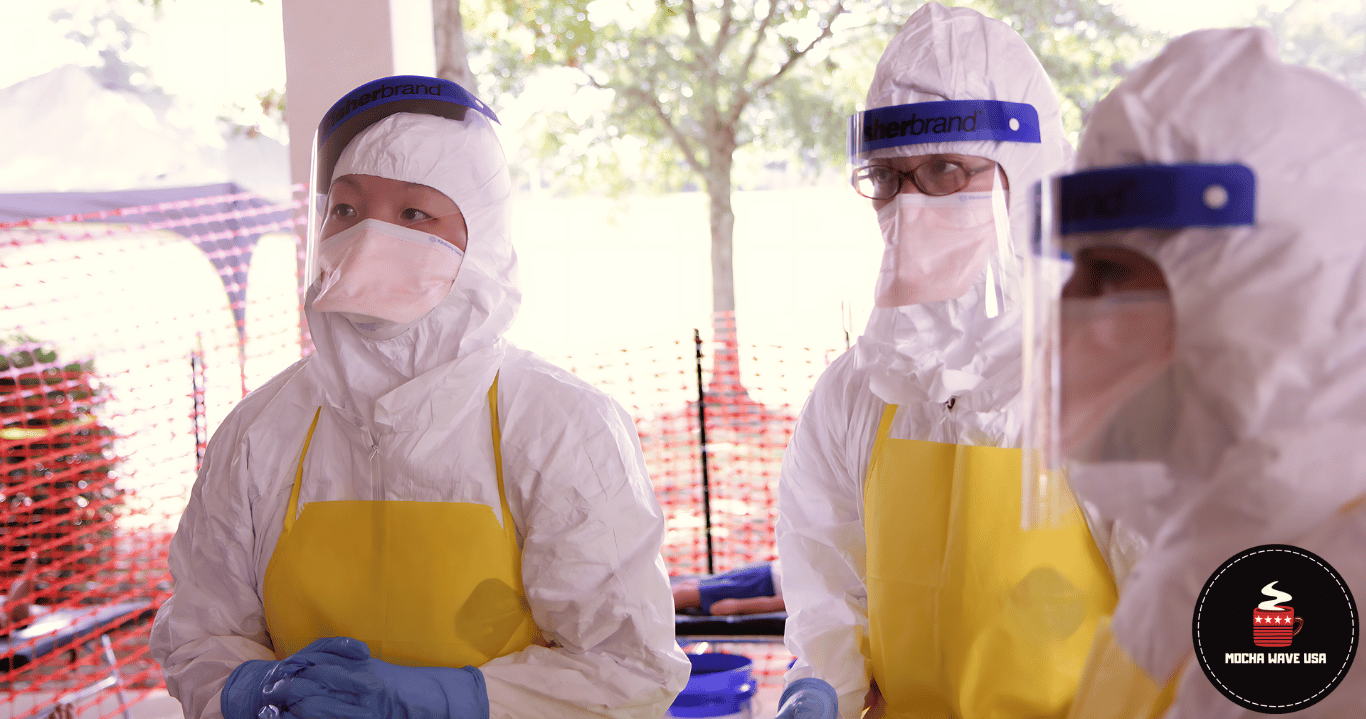Monkeypox, a viral zoonotic disease, has been designated a Public Health Emergency of International Concern (PHEIC) by the World Health Organization (WHO). This designation highlights the serious nature of the current outbreaks and their potential global impact. Here’s a comprehensive look at monkeypox and why it poses a significant global emergency following the COVID-19 pandemic:
Is monkeypox going to be the next pandemic?
Understanding Monkeypox
1. Background and Origin
Monkeypox is caused by the monkeypox virus, an Orthopoxvirus related to smallpox. The virus was first identified in monkeys in 1958, and the first human case was reported in the Democratic Republic of the Congo (DRC) in 1970. Endemic primarily in Central and West Africa, monkeypox has historically been confined to these regions, with occasional outbreaks elsewhere.
2. Symptoms and Transmission
Monkeypox manifests with symptoms similar to smallpox, including fever, headache, muscle aches, and a distinctive rash that evolves from maculopapular lesions to vesicles and pustules. The disease is transmitted from animals to humans through contact with infected animals or bodily fluids. Human-to-human transmission occurs via respiratory droplets, skin lesions, or contaminated surfaces.
The current outbreak is particularly concerning due to the emergence of new clades (strains) of the virus and their spread beyond traditionally affected regions.
Recent Developments and Global Concerns
1. Recent Outbreaks
In 2022, monkeypox was declared a PHEIC for the first time as the virus spread rapidly across countries outside its usual endemic regions. The 2023 outbreak in the DRC and neighboring countries has prompted a renewed PHEIC declaration due to several alarming factors:
Emergence of a New Strain: A new clade (clade 1b) of monkeypox, which spreads more readily through sexual networks, has complicated control efforts. This strain has been detected in the DRC and neighboring countries like Burundi, Kenya, Rwanda, and Uganda.
Rapid Spread: The disease has spread quickly in the DRC and its neighbors, with over 100 laboratory-confirmed cases of the new clade reported recently. This rapid spread is concerning as it occurs in regions where monkeypox had not previously been reported.
2. Public Health Implications
The designation of monkeypox as a PHEIC highlights the potential for the disease to cause significant public health challenges:
Global Spread: Monkeypox’s ability to spread internationally, as observed in 2022, demonstrates how a localized outbreak can become an international concern. The virus’s transmission via respiratory droplets and contact with lesions means it can quickly spread in crowded or interconnected environments.
Healthcare Strain: Outbreaks strain healthcare systems, particularly in regions with limited resources—the need for effective surveillance, diagnostics, and treatment increases, which can overwhelm local health services.
Economic Impact: The spread of monkeypox can lead to economic disruptions similar to those experienced during the COVID-19 pandemic. Travel restrictions, trade interruptions, and increased healthcare costs can impact economies, especially in low-income regions.
Why Monkeypox is a Global Emergency
1. Lessons from COVID-19
The COVID-19 pandemic highlighted the rapid spread of diseases globally and the profound impact on public health and economies. The lessons learned emphasize the need for:
Early Detection: Prompt identification and reporting of outbreaks are crucial to controlling the spread of diseases. Delays in detection can lead to wider and more severe outbreaks.
Global Coordination: Effective responses require international collaboration. The COVID-19 pandemic underscored the importance of sharing information, resources, and strategies across borders.
2. The Current Situation
The WHO’s declaration of monkeypox as a PHEIC reflects several pressing concerns:
The Emergence of a New Clade: The new clade of monkeypox, which spreads more efficiently through sexual networks, poses new challenges for containment and prevention. This strain’s rapid spread in new regions highlights the need for targeted public health responses.
Increased Cases: The number of reported cases has surged, surpassing previous records. With over 15,600 cases and 537 deaths reported this year alone, the scale of the outbreak is concerning.
Need for Vaccines and Treatments: The WHO is working to facilitate equitable access to vaccines and treatments. The Emergency Use Listing for monkeypox vaccines aims to accelerate vaccine availability, especially in lower-income countries. Vaccine distribution and public health response face significant financial and logistical challenges.

Strategic Response and International Coordination:
1. WHO’s Role
The WHO plays a crucial role in coordinating the global response to monkeypox:
Issuing Recommendations: The WHO will issue temporary recommendations to countries based on the advice of the Emergency Committee. These recommendations will guide public health measures, including vaccination, surveillance, and containment strategies.
Funding and Support: The WHO has released initial funds to support response activities and is appealing for additional funding. This support is critical for surveillance, preparedness, and response efforts.
2. International Collaboration
Addressing the monkeypox emergency requires:
Global Surveillance: Enhanced surveillance systems to detect and monitor real-time outbreaks.
Equitable Vaccine Distribution: Ensuring vaccines and treatments are available to all affected regions, particularly those with limited resources.
Community Engagement: Working closely with affected communities to implement effective public health measures and improve awareness.
Monkeypox has emerged as a significant global health concern, especially following the COVID-19 pandemic. The declaration of a PHEIC reflects the seriousness of the current outbreaks and the potential for further spread. Addressing this emergency requires global cooperation, timely interventions, and robust public health strategies. The lessons from COVID-19 highlight the need for vigilance, preparedness, and coordinated action to prevent and manage infectious disease outbreaks.
